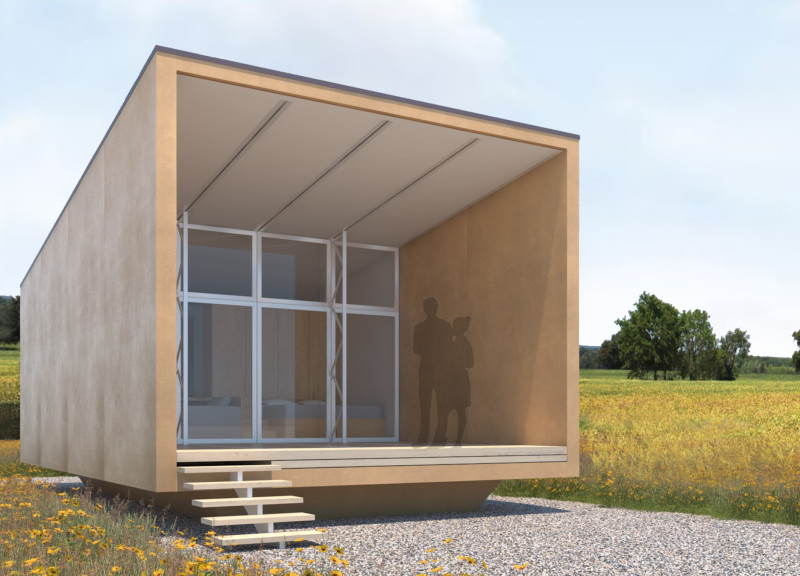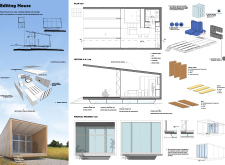5 key facts about this project
The Editing House offers a contemporary solution to residential living, focusing on flexibility and efficiency within urban settings. It is designed to provide adaptable living spaces that cater to various geographical contexts and individual needs. The concept centers around three separate blocks: Toilet, Bed, and Kitchen, each fulfilling a specific function while promoting a coherent and organized layout.
Functional Blocks
The design clearly separates essential living functions into three dedicated blocks. The Toilet Block, Bed Block, and Kitchen Block enable residents to navigate their daily routines with ease. This arrangement prioritizes practical living while ensuring comfort in the space. Each block serves its purpose, creating a functional flow suited for everyday activities.
Material Selection
The choice of materials plays a significant role in the project’s effectiveness. Prefabricated panels constructed with baked clay provide both strength and quick assembly. This approach helps to reduce construction time and limits environmental impact. Additionally, the use of XLAM panels for flooring enhances the durability and stability of the structure while keeping the focus on efficient design.
Sustainability Integration
Sustainability sits at the core of the design, evident through features such as a rainwater recycling system and photovoltaic panels. These elements are intended to create a self-sufficient home that minimizes reliance on external resources. By incorporating environmental practices, the Editing House addresses modern living challenges while supporting responsible habitation.
Dynamic Elements
One notable feature is the mobile window, which allows the indoor space to extend into the outdoors. This design element increases access to natural light and airflow. It also helps blur the lines between inside and outside, enriching the experience of living in the house. Such details enhance the overall design, offering a connection with nature that is often sought after in contemporary living spaces.




















































